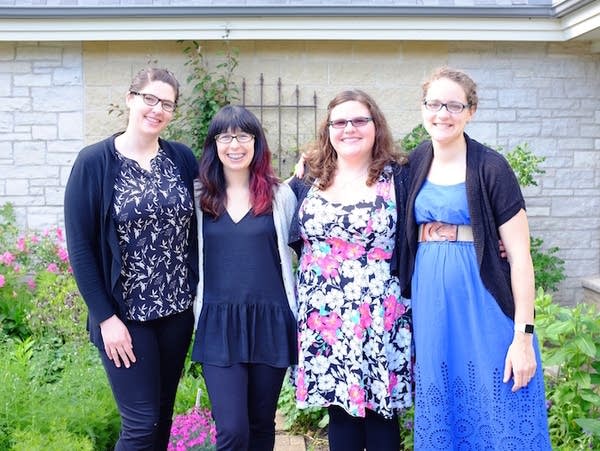Many classical composers started their music education as children, studying multiple instruments as well as composition. Some of them even composed works of impressive quality and fame before they reached adulthood. Mill City String Quartet's (MCSQ) program "Music for Minors" displays the music of three such child prodigies: Wolfgang Amadeus Mozart, Juan Crisóstomo Arriaga, and Felix Mendelssohn. They were alive within less than 100 years of each other: Mozart was born in 1756 and Mendelssohn died in 1847. Mozart and Arriaga share the same birthday (separated by 50 years) — January 27. Arriaga and Mendelssohn were contemporaries, though Mendelssohn managed to live longer. It's actually a lucky thing for classical musicians that all three started producing music so young because none of them lived terribly long in adulthood — in the case of Arriaga, he only lived to age 19.
MCSQ focused on two elements as they shared the music of these young composers: emotions in music and compositional forms. Music is a great outlet for expression because it is powerful enough to transcend language barriers, and since there is no one way to listen to music, it is open to interpretation. Composers need to be inspired by some kind of experience — an idea or an emotion or an event — before they can write music. Then the choice of key, dynamics, articulation, tempo and rhythm are integral whatever the composer wishes to express.
The form of the composition can also contribute to the interpretation. A b-minor fugue by Mendelssohn, in which the themes never stop running over each other, might be interpreted as an expression of as anxiety. A Mozart minuet might bring to mind a formal ballroom full of chandeliers, candles and potted palms where ladies in ridiculous wigs and huge skirts fan themselves as they wait to be asked to dance by gentlemen (also in silly wigs) with fancy cravats and big-buckled shoes. Arriaga's first movement to his string quartet performed by MCSQ starts in d-minor, but ends up in D-major taking the piece from an angry and dark beginning to a conclusion brimming with joy.
As demonstrated by Mozart, Arriaga and Mendelssohn, it's never too early to get started on composition. MCSQ encouraged the music classes to write their own compositions and have them ready for the quartet to perform for them. The students at Kingsland Elementary in Spring Valley wrote four different compositions for the Mill City String Quartet to perform. They were not written out in the traditional way, but were more like instructions open to interpretation by the musicians. For example, one work was about a storm; the "instructions" described how the storm grew and so the intensity of the strings grew louder and more frenzied like wind and rain and thunder over the 20-second piece. These compositions gave the students a chance to learn what it was like to express their voice through a new artistic medium.
When modern day musicians play music by composers who have been dead for hundreds of years, it's like the voice of these composers comes back to life. We get a glimpse into how they might have been feeling, what they might have been interested in or experiencing at the time of composition. Hopefully pieces that are being written now, even if they are little classroom exercises like those of Kingsland Elementary, will give future humans an intriguing impression of our own lives.
Class Notes Artists are made possible in part by the Minnesota Legacy Amendment's Arts and Cultural Heritage Fund.
Love the music?
Show your support by making a gift to YourClassical.
Each day, we’re here for you with thoughtful streams that set the tone for your day – not to mention the stories and programs that inspire you to new discovery and help you explore the music you love.
YourClassical is available for free, because we are listener-supported public media. Take a moment to make your gift today.




